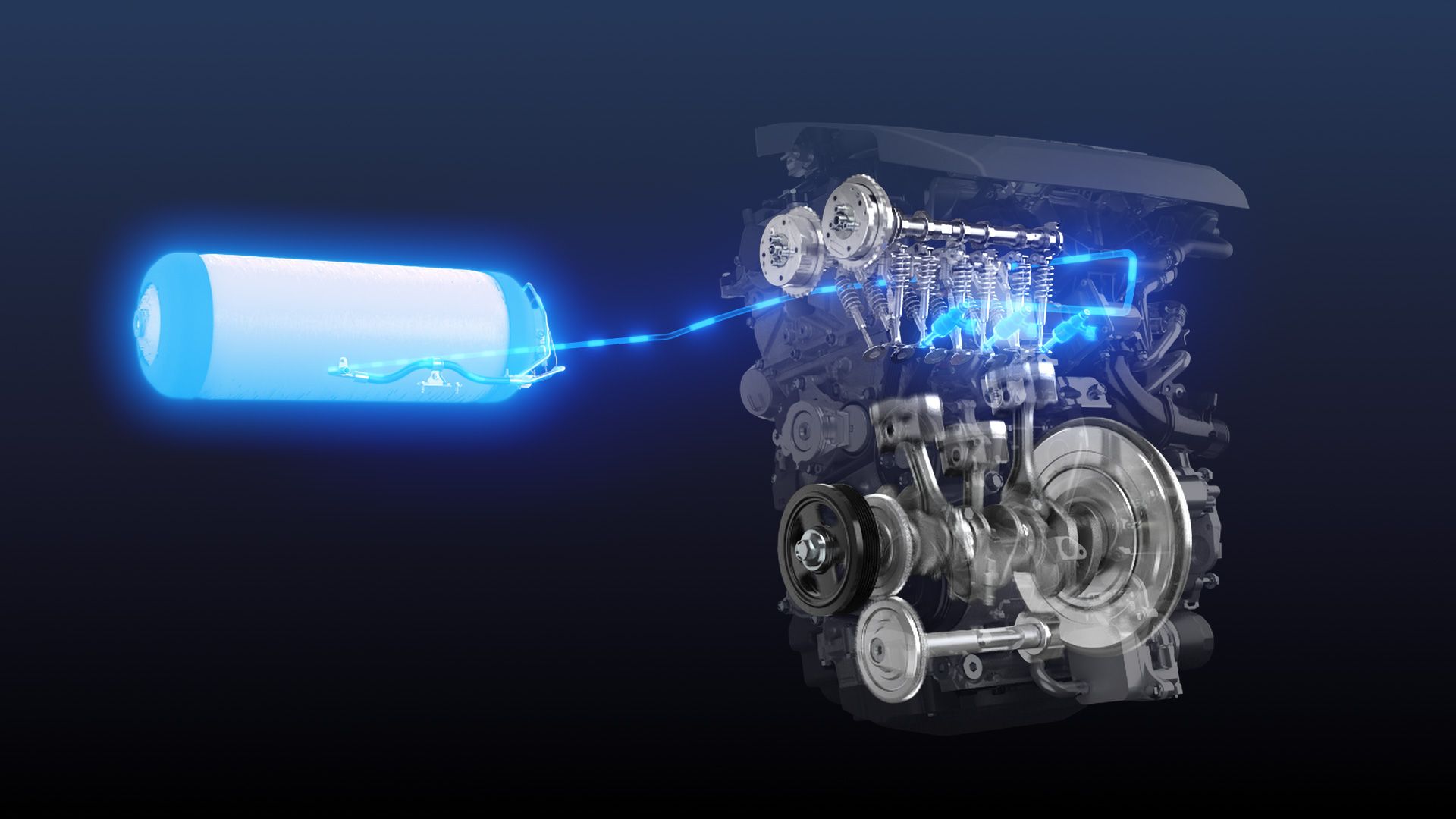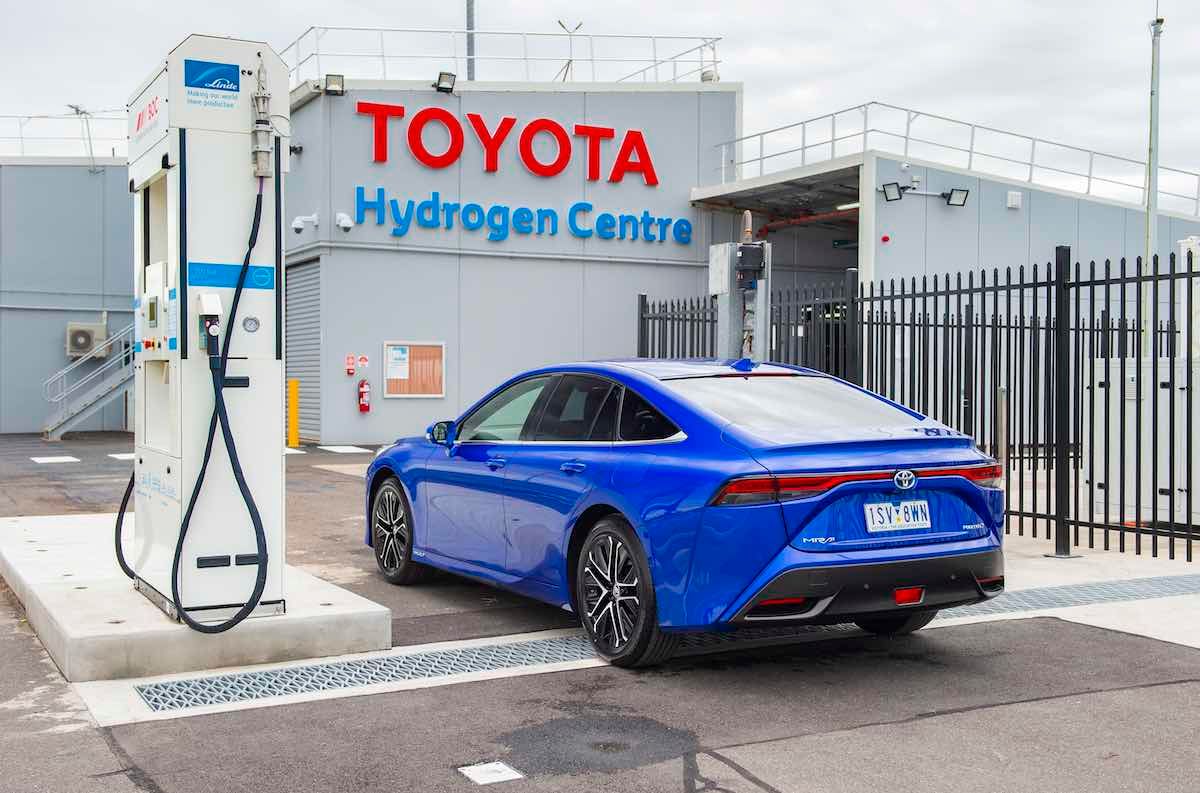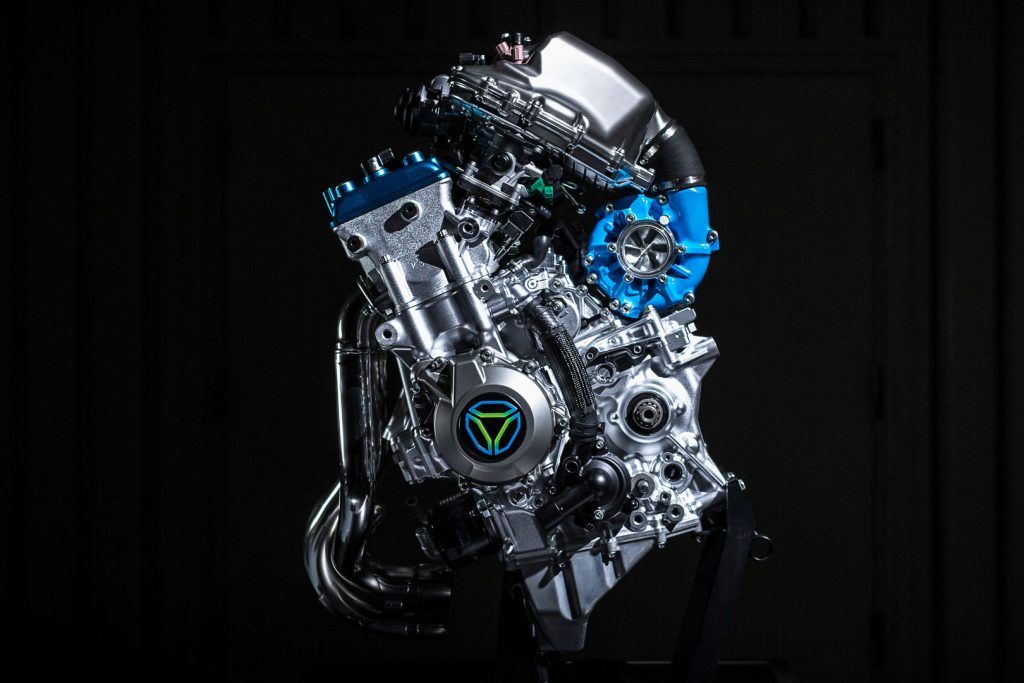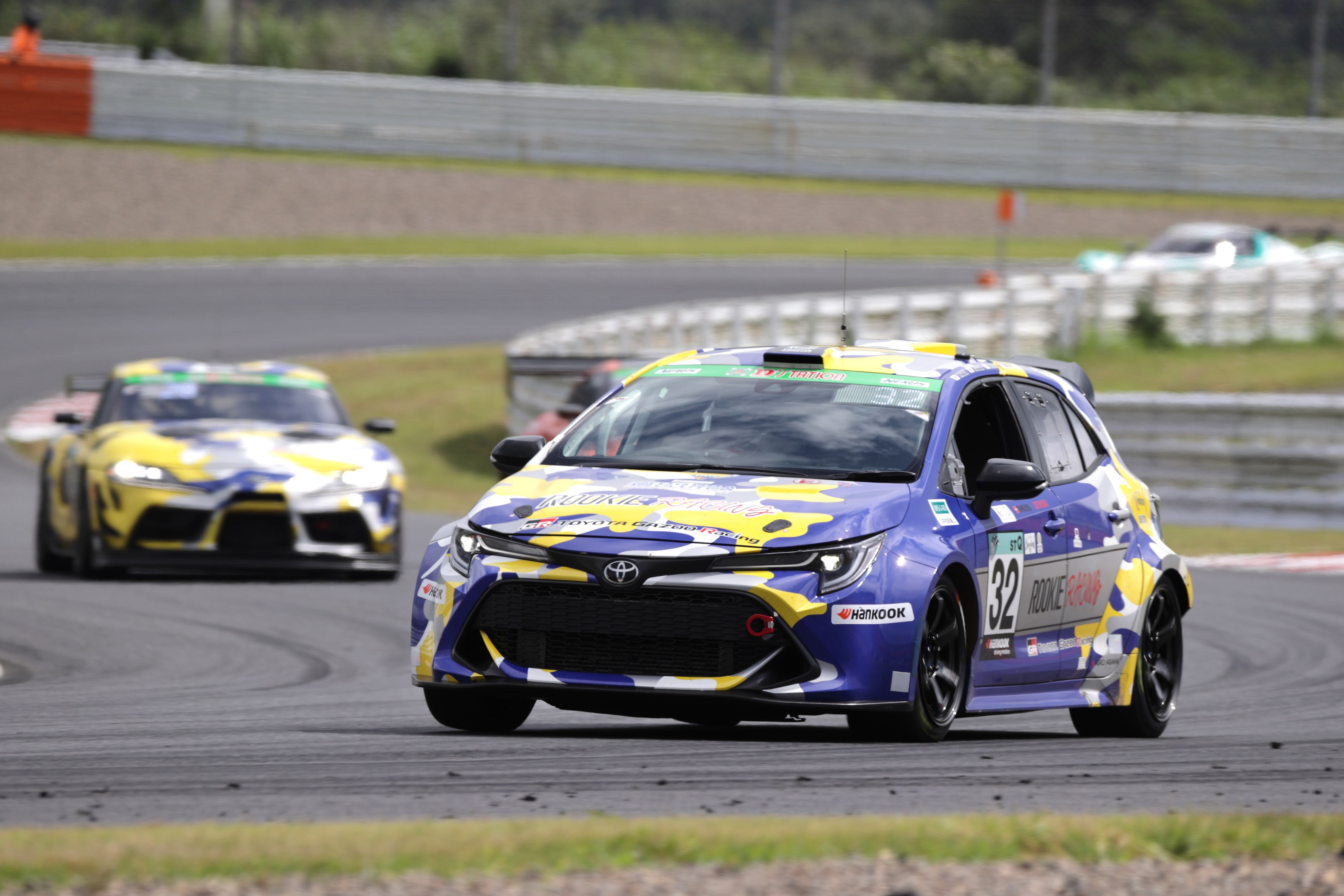[ad_1]
It’s not often that two heavyweights from the automotive industry come together to work on a project. Even rarer are collaborations between a car manufacturer and a motorcycle manufacturer. But, that’s exactly what we have here. Toyota and Kawasaki are putting their minds together to find alternative ways to reduce carbon emissions.
The alternative method in this case is hydrogen power. Not hydrogen fuel cells though, they’re developing an internal combustion engine that burns hydrogen as fuel. Hence, these feel (and sound!) like regular gasoline engines without the negative environmental effects.
The Technology Behind Toyota And Kawasaki’s Partnership
Toyota are working with Kawasaki to develop a hydrogen motorcycle engine with the target of zero CO2 emissions. A hydrogen engine burns hydrogen instead of petrol or diesel and the only harmful emissions come from a minimal amount of combusted engine oil. This is not to be confused with vehicles that run on hydrogen fuel cell power. In that case, the car (or motorcycle) is powered by the electricity generated from the hydrogen in their fuel cells. The type of hydrogen engine that has brought Toyota and Kawasaki together is very similar to a traditional engine and, therefore, most of the parts that are used on regular engines can be transferred easily to these hydrogen engines.
When hydrogen is burned, it combines with oxygen to produce water. Some water vapor coming out of the exhaust is a lot less to worry about than carbon dioxide. Admittedly, there would still be some NOx emissions due to the presence of nitrogen in air, but the overall picture is a lot more positive than regular engines.
One of the big aims of Toyota is to find a way to use liquefied hydrogen rather than hydrogen in gas form. Liquid hydrogen only takes up 1/800th of the volume of the gaseous version. With a fuel tank full of liquefied hydrogen, the range of these vehicles would be hugely increased.
The Obstacles Keeping Hydrogen Power From The Mainstream
Bringing hydrogen power to the masses is far from straightforward. There is much more development to be done on this technology before it’s truly viable. Governments around the world will need to have lengthy discussions about the laws and regulations for these vehicles. One of the major obstacles is that they may not get the same treatment as hybrid and electric vehicles. For this technology to succeed, it required supports and positive legislation, not restrictions.
Another big stumbling block is hydrogen extraction. To get hydrogen, it’s both costly and harmful to the environment. With the limited infrastructure in place, a hydrogen vehicle is currently much more expensive to run than an electric one. Green hydrogen is the proposed solution. It’s generated through water electrolysis using solar or wind power and, as such, emits no carbon dioxide during production.
The public is very familiar with traditional vehicles, and increasingly so with hybrid and electric variants. Hydrogen vehicles, on the other hand, are much less of a comfortable idea for most. There is fear around the perceived danger of driving around with a tank full of volatile hydrogen, when this isn’t too different from driving around with a tank full of gas. The likes of Toyota and Kawasaki want to introduce hydrogen engines to people as a genuine and reliable option for powering their vehicles. Toyota is confident that once people see and feel these vehicles, any negative perception will change.
Hydrogen Powered Kawasaki Gives Bikers Hope
Many bikers are very hesitant about giving up their petrol–engined motorcycles in favor of an electric bike. Kawasaki is working on hydrogen engines to produce a motorcycle with almost no harmful emissions but one that retains all the characteristics of a traditional motorcycle that bikers know and love.
Kawasaki are experienced with two aspects of the technology required to make hydrogen engines worthwhile. Firstly, direct–injection is essential. This is where injectors spray fuel directly into the cylinders. In port–injection, the injectors spray fuel into the intake ports, it then mixes with air and is sucked into the cylinder. The issue arises when you try to inject hydrogen gas into an intake port. The pressure of this gas will push the air back out of the intake port and disturb the required air/fuel ratio. Secondly, Kawasaki has developed a supercharger for their H2 motorcycle, and this air compression capability combined with direct–injection is the perfect way to get the most out of a hydrogen–fueled motor. Furthermore, this configuration may actually have a higher power output than its gasoline equivalent.
Toyota Are At The Forefront Of Hydrogen Vehicle Development
Toyota has been leading the charge of so–called HICEVs (Hydrogen Internal Combustion Engine Vehicles) for some time now. While they believe that electric vehicles will be the eventual solution, they suggest that HICEVs are a good option to offset carbon emissions in the meantime. Toyota also want to offer multiple eco–friendly options for customers looking to move on from gasoline. HICEVs are a sensible first step as they are very similar to regular cars. There is no learning curve, unlike moving to an electric car, as there is no change in how to operate the vehicle.
For both development and publicity, Toyota have been running a hydrogen–powered Corolla Sport in various races including the Fuji 24 Hours, which it completed. Racing offers a great platform to advertise the success of new technology, and also acts as an ideal test bed to try out new components.
Moving away from gasoline–powered cars and motorcycles is an unfortunate inevitability. It doesn’t have to mean a boring, quiet experience though. With the innovation and ambition from Toyota and Kawasaki, all hope is not lost. Hydrogen engines may sit in the sweet spot of being environmentally–friendly but still feeling and sounding like a real motor.
Sources: Toyota, Kawasaki, AFDC
[ad_2]
Source link




